kidsbook
CSO for Kids: School Concerts November 14, 2025 | 10:15 & 12:00
CSO for Kids: Family Matinees November 15, 2025 | 11:00 & 12:45
Welcome!
Have you ever heard music and wished you could join in? Well, picking which instrument you’d like to play is the very first step!
In this concert, we’ll explore the various instruments that make up an orchestra, and, by the end, maybe you’ll have your eyes and ears set on one you’d like to learn!
Which instrument should I play?
Performers
Chicago Symphony Orchestra
Andrew Grams conductor
Justin Roberts guest artist
On the Program
Selections from:
ROSSINI Overture to William Tell
ROBERTS New Work
BARTÓK Allegro Assai from Divertimento for String Orchestra
RAVEL Prélude from Le tombeau de Couperin
BRUCKNER Symphony No. 4 in E-flat Major (Romantic)
J. STRAUSS, JR. Thunder and Lightning Polka
TCHAIKOVSKY Finale from Symphony No. 4 in F Minor, Op. 36
ABOUT THE PROGRAM
The first piece on the concert, the Overture to William Tell by Gioachino Rossini, showcases all the instruments at once. Was there one that caught your attention? What stood out about it?
These excerpts from Béla Bartók ’s Divertimento for String Orchestra put the spotlight on the strings. What did you like about the sound of the double bass? Can you mime playing the violin with a bow?
The Prélude from Le tombeau de Couperin by Maurice Ravel shows off the woodwinds. Were you able to pick out the sound of the oboe? Did you feel more curious about the sound of the flute, clarinet or bassoon?
The brass instruments certainly stand out in Symphony No. 4 in E-flat Major (Romantic) by Anton Bruckner! Did you enjoy the bold sound of the trumpet? Or perhaps the smooth sounds of the French horn were more to your liking?
Have you ever drummed your pencil on the desk, or tapped your toes to the beat of a song? Then you’re already halfway to playing the percussion, which is the star of Thunder and Lightning Polka by Johann Strauss, Jr.!
Whichever instrument you choose, you will be an important part of any orchestra! When you hear Finale from Symphony No. 4 in F Minor by Pyotr Ilyich Tchaikovsky, you can hear that each one is a small part of the whole. Every musician and the instrument they play are an important part of the community.
Which instrument should you play?
1 2
5
Which word best describes you?
a. Smart
b. Brave
c. Creative
d. Funny
If you could have one of these as a pet, which one would you want?
a. Parakeet
b. Hamster
c. Fish
d. Snake
If you picked mostly As ... try a brass instrument! The main brass instruments are trumpet, french horn, trombone and tuba.
What is your favorite color?
a. Red
b. Yellow
c. Blue
d. Green
6
Which fruit is your favorite?
a. Pineapple
b. Apple
c. Raspberry
d. Watermelon
If you picked mostly Bs ... perhaps percussion is for you! The percussion family includes the bass drum, snare drum, timpani and marimba.
Get some ideas by taking this
What would you most like to read a book about?
a. Magic
b. Monsters
c. Buried Treasure
d. Spaceships
3 4 7 8
Which style of music is your favorite?
a. Jazz
b. Rock
c. Classical
d. Pop
If you picked mostly Cs ... give a string instrument a try! The string family is made up of the violin, viola, cello and double bass.
If you could travel to one of these cities, which would it be?
a. Washington, D.C.
b. San Francisco
c. Dallas
d. New Orleans
Which is your favorite season?
a. Winter
b. Summer
c. Spring
d. Fall
If you picked mostly Ds ... take a woodwind for a whirl! You might try the flute, clarinet, oboe or bassoon.
Meet the Conductor
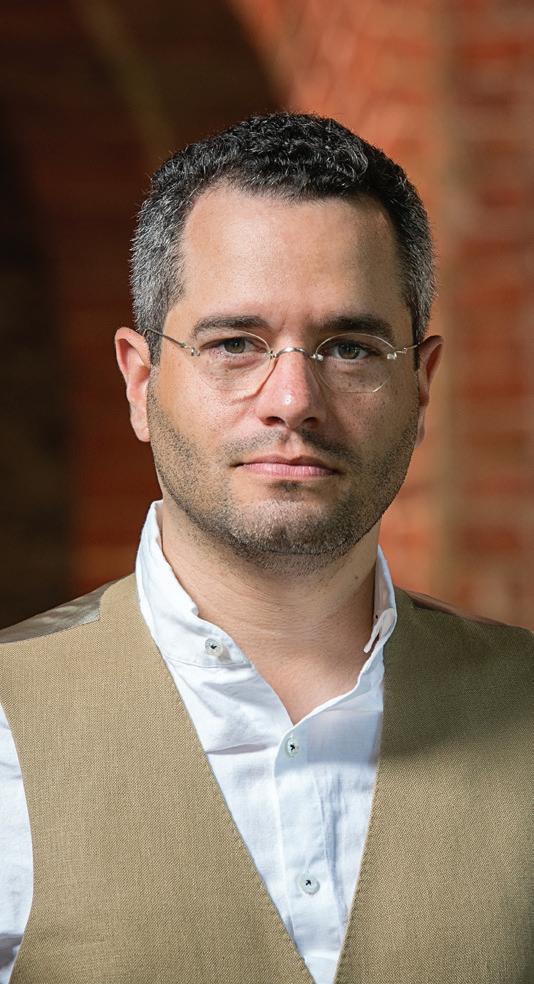
Meet the
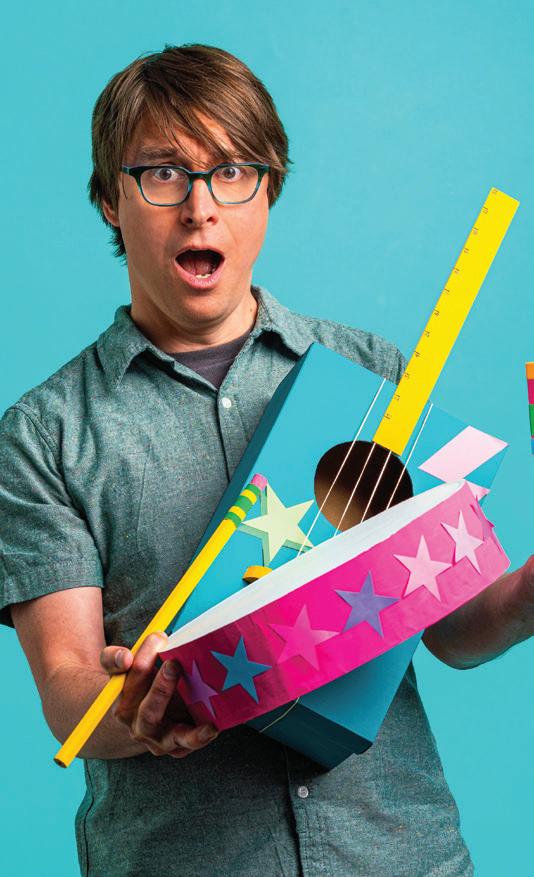
Andrew Grams is originally from Severn, Maryland. He holds a bachelor of music degree in violin performance from the Juilliard School, and a conducting degree from the Curtis Institute of Music.
The winner of 2015 Conductor of the Year honors from the Illinois Council of Orchestras, Grams has led ensembles throughout the United States, including the Baltimore, Chicago, Cincinnati, Dallas, Detroit symphony orchestras; the National Symphony Orchestra, St. Louis Symphony, and the Philadelphia Orchestra.
Grams became music director of the Elgin Symphony Orchestra in 2013, following an international search, and recently concluded his tenure there after eight seasons.
A frequent traveler, Grams has worked extensively with orchestras abroad, including the symphony orchestras of Toronto, Montreal and Vancouver; the Orchestre National de France; Hong Kong Philharmonic; BBC Symphony Orchestra London; the symphony orchestras of Sydney, Melbourne and Adelaide; the New Zealand Symphony Orchestra; the Barcelona Symphony Orchestra, and Het Residentie Orchestra in The Hague, Netherlands. He has led multiple performances of the New York City Ballet presentation of George Balanchine’s The Nutcracker and the first performances of a new production of The Nutcracker for the Norwegian National Ballet.
Guest Artist Andrew Grams
Justin Roberts
Five-time Grammy® nominee Justin Roberts is one of the leaders of the modern family music scene. For over 25 years, Roberts has been creating the soundtrack to families’ lives, helping kids navigate the joys and sorrows of growing up, while inspiring parents to remember their own childhoods.
Along with his band, The Not Ready for Naptime Players, Justin has traveled the globe, from Hong Kong to New York and Miami to Seattle. Appearances include performances at NYC’s New Victory Theater, D.C.’s National Geographic Live, Los Angeles’ Getty Museum, Seattle’s Moore Theater, Lollapalooza, Austin City Limits and Chicago’s Ravinia Festival. Justin has performed in front of millions of people on “The Today Show,” he’s been featured on Nick Jr. TV, and his song “Get Me Some Glasses” was featured on a World Series broadcast.
Roberts has received five Grammy Award nominations, for Jungle Gym in 2010, Recess in 2013, Lemonade in 2017, Wild Life in 2020 and Space Cadet in 2023.
His latest album, Brain Freeze was released in April of 2025 and features songs about treasure hunts, fire-breathing dragons and the pure joy of Saturdays.
CHICAGO SYMPHONY ORCHESTRA
KLAUS MÄKELÄ zell music director designate RICCARDO MUTI music director emeritus for life
JOYCE DIDONATO artist-in-residence
violins
Robert Chen Concertmaster
The Louis C. Sudler Chair, endowed by an anonymous benefactor
Stephanie Jeong Associate Concertmaster
The Cathy and Bill Osborn Chair
David Taylor Assistant Concertmaster*
The Ling Z. and Michael C. Markovitz Chair
Yuan-Qing Yu Assistant Concertmaster*
So Young Bae
Cornelius Chiu
Gina DiBello
Kozue Funakoshi
Russell Hershow
Qing Hou
Gabriela Lara
Matous Michal
Simon Michal
Sando Shia
Susan Synnestvedt
Rong-Yan Tang
Baird Dodge Principal
Danny Yehun Jin Assistant Principal
Lei Hou
Ni Mei
Hermine Gagné
Rachel Goldstein
Mihaela Ionescu
Melanie Kupchynsky
Wendy Koons Meir
Ronald Satkiewicz ‡
Florence Schwartz
violas
Teng Li Principal
The Paul Hindemith Principal Viola Chair
Catherine Brubaker
Youming Chen
Sunghee Choi
Wei-Ting Kuo
Danny Lai
Weijing Michal
Diane Mues
Lawrence Neuman
Max Raimi
cellos
John Sharp Principal
The Eloise W. Martin Chair
Kenneth Olsen Assistant Principal
The Adele Gidwitz Chair
Karen Basrak
The Joseph A. and Cecile
Renaud Gorno Chair
Richard Hirschl
Daniel Katz
Katinka Kleijn
Brant Taylor
The Ann Blickensderfer and Roger Blickensderfer Chair
basses
Alexander Hanna Principal
The David and Mary Winton
Green Principal Bass Chair
Alexander Horton Assistant Principal
Daniel Carson
Ian Hallas
Robert Kassinger
Mark Kraemer
Stephen Lester
Bradley Opland
Andrew Sommer
flutes
Stefán Ragnar Höskuldsson § Principal
The Erika and Dietrich M.
Gross Principal Flute Chair
Emma Gerstein
Jennifer Gunn
piccolo
Jennifer Gunn
The Dora and John Aalbregtse Piccolo Chair
oboes
William Welter Principal
Lora Schaefer Assistant Principal
The Gilchrist Foundation, Jocelyn Gilchrist Chair
Scott Hostetler
english horn
Scott Hostetler
clarinets
Stephen Williamson Principal
John Bruce Yeh Assistant Principal
The Governing Members Chair
Gregory Smith
e-flat clarinet
John Bruce Yeh
bassoons
Keith Buncke Principal
William Buchman Assistant Principal
Miles Maner
horns
Mark Almond Principal
James Smelser
David Griffin
Oto Carrillo
Susanna Gaunt
Daniel Gingrich ‡
trumpets
Esteban Batallán Principal
The Adolph Herseth Principal Trumpet Chair, endowed by an anonymous benefactor
John Hagstrom
The Bleck Family Chair
Tage Larsen
trombones
Timothy Higgins Principal
The Lisa and Paul Wiggin
Principal Trombone Chair
Michael Mulcahy
Charles Vernon
bass trombone
Charles Vernon
tuba
Gene Pokorny Principal
The Arnold Jacobs Principal Tuba Chair, endowed by Christine Querfeld
timpani
David Herbert Principal
The Clinton Family Fund Chair
Vadim Karpinos Assistant Principal
percussion
Cynthia Yeh Principal
Patricia Dash
Vadim Karpinos
librarians
Justin Vibbard Principal
Carole Keller
Mark Swanson
cso fellows
Jesús Linárez Violin
The Michael and Kathleen Elliott Fellow
Ariel Seunghyun Lee Violin
Olivia Jakyoung Huh Cello
orchestra personnel
John Deverman Director
Anne MacQuarrie Manager, CSO Auditions and Orchestra Personnel stage technicians
Christopher Lewis Stage Manager
Blair Carlson
Paul Christopher
Chris Grannen
Ryan Hartge
Peter Landry
Joshua Mondie
* Assistant concertmasters are listed by seniority ‡ On sabbatical § On leave
The CSO’s music director position is endowed in perpetuity by a generous gift from the Zell Family Foundation.
The Louise H. Benton Wagner chair currently is unoccupied.
The Chicago Symphony Orchestra string sections utilize revolving seating. Players behind the first desk (first two desks in the violins) change seats systematically every two weeks and are listed alphabetically. Section percussionists also are listed alphabetically.
INSTRUMENTS OF THE ORCHESTRA
THE STRING FAMILY includes violin, viola, cello, bass and harp. These instruments are made of wood and strings and are played by vibrating the strings using a bow, or plucking or striking the strings with the fingers.
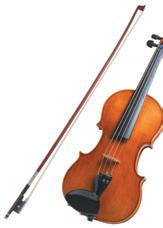
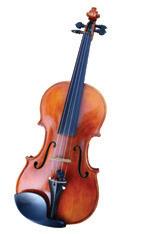
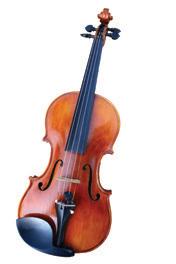
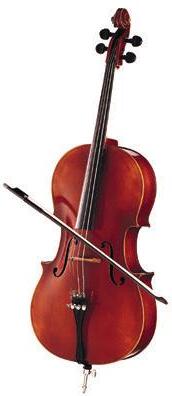
THE WOODWIND FAMILY includes flute, oboe, clarinet, bassoon and saxophone. These instruments all have the same basic shape: a long tube with a mouthpiece at one end. The flute is played by blowing across a mouthpiece to create a vibration. Oboe, clarinet, bassoon and saxophone are all played by blowing air into a single or double reed attached to the mouthpiece, creating a vibration that results in sound.
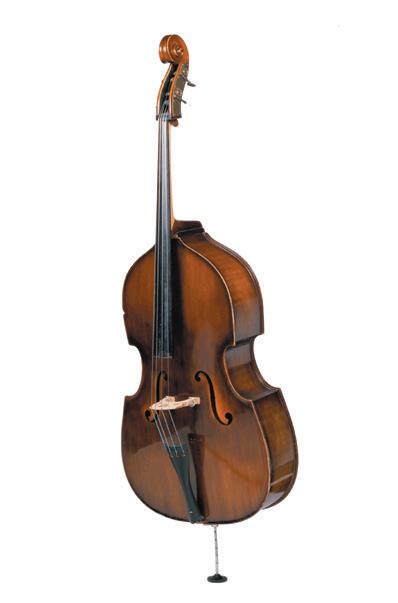





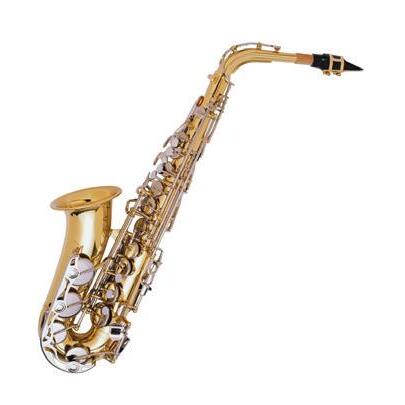
THE BRASS FAMILY includes horn, trumpet, trombone, euphonium and tuba. Brass instruments make a sound when the players vibrate their lips inside a mouthpiece, which is fitted into the instrument. The players can change pitch on a trumpet, horn or tuba by pressing on valves. Trombone players change pitch by moving the slide back and forth.
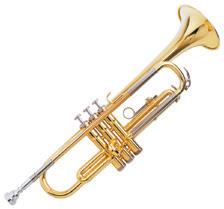


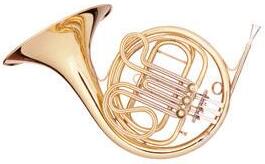
THE PERCUSSION FAMILY includes snare drum, bass drum, gong, triangle, xylophone, timpani and piano, among many others. Percussion instruments are struck, scraped or shaken.
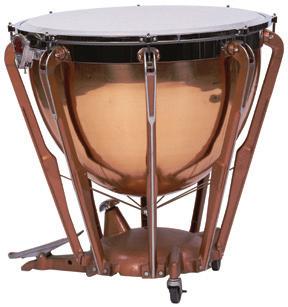
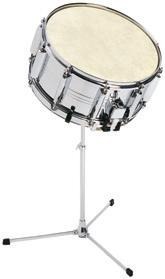
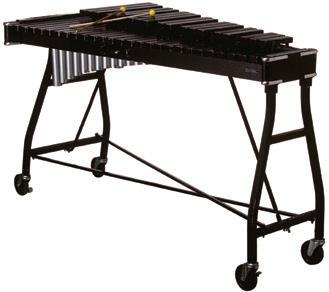
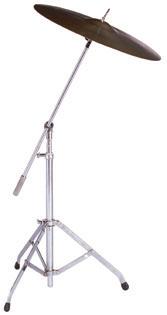
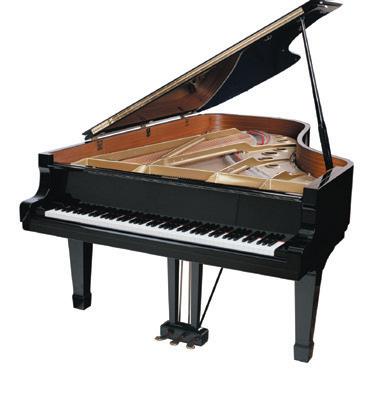
Support for Chicago Symphony Orchestra Association programming for children and families is provided by John Hart and Carol Prins, Kinder Morgan, PNC, Megan and Steve Shebik, Michael and Linda Simon, the Walter and Caroline Sueske Charitable Trust and an anonymous family foundation.
The Negaunee Music Institute is endowed in perpetuity through a gift from The Negaunee Foundation.
Youth Education Program Sponsor
Family Matinees Sponsor
CSO for Kids concerts and CPS Partnerships Corporate Sponsor
Content for Kidsbook was created by Katy Clusen with graphic design by Shawn Sheehy.
Kidsbook© is a publication of the Negaunee Music Institute. For more information, call 312-294-3410 or email institute@cso.org.
